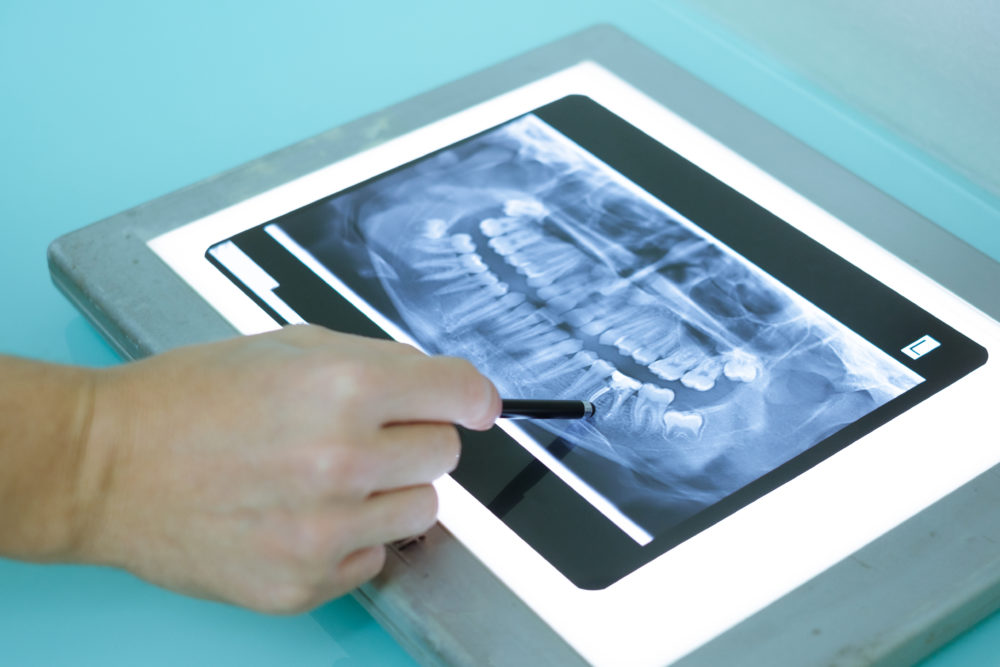
August 29, 2019
Guide to Dental X-rays
Not every visit to the dentist requires X-rays, but at some point, your dentist will have a reason to include this step in your appointment. To help you feel informed and prepared, here’s a closer look at the answers to some common questions about dental X-rays.
How often do I need a dental X-ray?
The answer to this question can vary a little depending on the patient and their specific dental history and current situation. If you have an ongoing issue or are in the midst of a longer-term procedure, you may need more regular X-rays. However, if your teeth, gums, and jaw are generally considered to be healthy and no issues are detected by your dentist during regular examination, you will most likely be advised to have X-rays taken every couple of years. Children often require more frequent X-rays, as their teeth and jaws are still developing, and they are also often more susceptible to tooth decay.
If you’re a new patient, your dentist will likely want to take X-rays to make sure they are familiar with any issues and to establish a baseline. If you had X-rays recently at another clinic, you may be able to get these sent over instead of doing this again.
Why do I need a dental X-ray?
Routine dental X-rays are recommended for a number of reasons. For adults, an X-ray can:
- Show tooth decay that isn’t apparent during a regular visual examination – for example, areas of decay between teeth or under an existing dental filling. Approximately 35-40% of a tooth’s surface cannot be seen without an X-ray!
- Detect issues with your jaw, such as bone loss from gum disease.
- Reveal an abscess (infection).
There are some additional reasons for routine dental X-rays with children, such as:
- Checking on the development of permanent teeth and wisdom teeth.
- Determining whether there is sufficient room for tooth development, or if orthodontics should be considered.
Along with routine updates, a dental X-rays can be required if:
- You are preparing for a procedure like removal of a tooth, dental implants, crowns and bridges, braces, or others.
- You suffer from xerostomia, which can increase your rate of tooth decay.
- You are a smoker, which greatly increases risks of oral cancer, gum disease, and other oral health issues.
Are dental X-rays safe?
Your safety is extremely important to us! Part of our dedication to offering you the highest-quality and safest dental care is utilizing the most advanced equipment in our clinic and onsite lab.
We use state-of-the-art digital X-rays to provide us with comprehensive views of your teeth, jaw, and gums, beyond what we can achieve through a visual examination. These digital X-rays give off 65% less radiation than conventional X-rays, while also producing more accurate images.
When it comes to X-rays, our clinic follows “ALARA,” which stands for “As Low As Reasonably Achievable.” The benefits and drawbacks always need to be weighed when deciding whether an X-ray is necessary, and we will always consider this carefully before making a recommendation. If you are concerned about safety around X-rays, we encourage you to talk to our dentists!
Should pregnant women have dental X-rays taken?
Always let us know before an X-ray if you are pregnant or may be pregnant. The nature of a dental X-ray means that there is almost no radiation exposure to any area but your jaw, and our X-ray procedure will be carefully followed to ensure that you and your baby are safe.
Oral health is very important for expectant mothers, so don’t neglect your dental appointments while you are pregnant! Read more about this here.
Remember – we’re here to answer your questions!
If you have questions about any element of your oral health or the care you receive in our clinic, including X-rays, just ask! Make your appointment here.